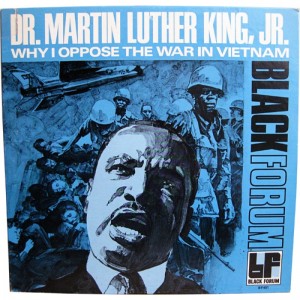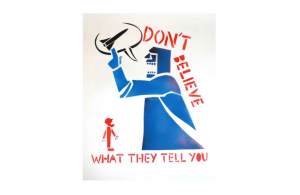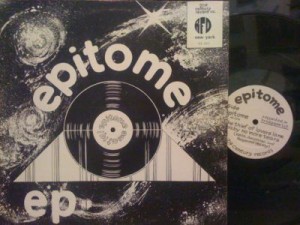“There comes a time when silence is betrayal,” Dr. Martin Luther King Jr. (1929-1968) said from the pulpit at Ebenezer Baptist Church in Atlanta on April 16, 1967, “I could never again raise my voice against the violence of the oppressed in the ghettoes without having first spoken clearly to the greatest purveyor of violence in the world today – my own government.”

“Why I Oppose the War in Vietnam” – Dr. Martin Luther King jr. Dodd Center, Archives & Special Collections LP’s.
This edition of Martin Luther King Jr. day means many things this year. A significant day to reflect on historical achievements in the United States for African Americans and people of color regarding civil rights and segregation, and as a nation, its first African American Commander in Chief takes office today. Though the Archives & Special Collections at the University of Connecticut may not contain Lincoln’s bible which will be used today in the swearing in of President Obama for his second term, we do have important materials that help contextualize why the issues of human rights for people of color in the United States and around the world matter now as ever.
A linkage between the US government’s role in violence in the third world during the War in Vietnam and the violence against people of color at home was a major topic of King’s speeches in the last year of his life. Other important figures like Olaudah Equiano, Frederick Douglass, W.E.B. Du Bois, Malcolm X and Angela Davis have also taken the stance on racism and human rights abuse to the internationalist position that a violence against people of color around the world is a violence to all. On this inaugural day of the President of the United States, taking the steps of the building which he will stand upon, built by African Americans enslaved 150 years ago, will symbolize an overwhelming achievement in a nation’s history. For the role of African Americans in the making of this country that has systematically seen its power turned to their oppression, the event symbolizes an equally outstanding time in history which lays deep within the meaning making of the citizen, the culture, and the class. The struggles of African American draftees, Medgar Evers of the NAACP, Harriet Tubman and the underground railroad, Freedom Riders from North to South and The 54th Regiment of Massachusetts all became witness to the atrocity and injustice brought to their people. The contextual archive, such as Why I Oppose the War in Vietnam, also bears witness to those injustices which continue on to lay the groundwork for the now, the tomorrow and thereafter.
“We as a nation must undergo a radical revolution of values, we must rapidly begin the shift from a thing oriented society to a person oriented society, when machines and computers, profit motives and property rights, are considered more important than people, the giant triplets of racism, extreme materialism, and militarism are incapable of being conquered. A true revolution of values will soon cause us to question the fairness and justice of many of our past and present policies…true compassion is more than flinging a coin to a beggar, it comes to see that an edifice that produces beggars needs restructuring.” – Martin Luther King Jr., April 4, 1967.
Materials on Civil Rights and Human Rights can be found at the Dodd Center’s Archives & Special Collections such as the LP Why I Oppose the War in Vietnam. For access to other radical LP’s from our Alternative Press Collection, please contact the Curator.
 In conjunction with the Dodd Center, the Archives & Special Collections has acquired NYC artist Seth Tobocman’s The World Is Being Ripped, a series of 14 narrative posters. This limited edition is the last spray art version which Tobocman released, making its unique street art aesthetic a historical document of design and propaganda. These stenciled graphics were originally created in the early 1980s to critique the militaristic individualism of the American Cold War economy and its impact on society:
In conjunction with the Dodd Center, the Archives & Special Collections has acquired NYC artist Seth Tobocman’s The World Is Being Ripped, a series of 14 narrative posters. This limited edition is the last spray art version which Tobocman released, making its unique street art aesthetic a historical document of design and propaganda. These stenciled graphics were originally created in the early 1980s to critique the militaristic individualism of the American Cold War economy and its impact on society:


